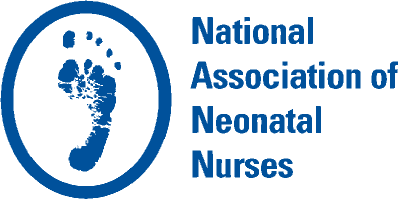Special Interest Group Update
Welcome to the newest NANN E-News section. In each issue, one of NANN’s special interest groups will share information in their area of focus.
Setting Professional Goals
Julie Williams, MSN APRN NNP-BC, Staff Nurse SIG
The New Year is underway and many of us are setting personal goals to eat better and take better care of ourselves. This also is the time for nurses to make professional goals. By doing so, nurses can direct the path they want to take rather than proceeding blindly. You can make your goals feel more attainable by breaking them down into several short-term goals. Here are some rules to follow when setting goals (Hayzlett, 2017).
Set goals that motivate you
Goals should have meaning, otherwise they will feel like a chore. Before you create any goals, take some time to reflect on your current position. Identify the areas of your practice that you enjoy the most and the least and what aspects you want to grow and develop. Then prioritize these areas for growth with the most important on the top of the list. Be sure to keep things simple to improve your chances for success.
Set SMART goals
Your goals should be specific, measurable, achievable, relevant, and time sensitive (SMART). A goal that is specific answers the five W questions: Who is involved? What do I want to accomplish? Where is it located? Which resources and constraints are involved? Why is this goal important? (Mind Tools Content Team, n.d.) Your goals also should be measurable—how will you know when the goal has been accomplished? Set goals that are achievable with consideration to your constraints and know what sacrifices you might have to make to get there. You also want your goals to be relevant to your career and align with the direction you want to move professionally. Finally, your goals should be time sensitive. Each goal should have a target completion date as this will help keep you on task (Mind Tools Content Team, n.d.) (Leigh, n.d.). Below is an example of a SMART goal:
“Throughout the 2018 performance review cycle, I will focus on strengthening my own competence and confidence in caring for infants with neonatal abstinence syndrome (NAS). I will do so by completing the modules on NAS offered by the Vermont Oxford Network by May 2018 and volunteering to care for at least two infants with NAS.”
Specific: I will increase my competence and confidence in caring for the infant with NAS.
Measurable: I will complete the modules on the infant with NAS offered by the Vermont Oxford Network by May 2018 and I will volunteer to care for at least two infants with NAS.
Attainable: The modules are provided to me for free through my hospital.
Relevant: The number of admissions of infants with NAS has increased within my unit. I want to be a stronger caregiver for these infants.
Time-sensitive: 2018 performance review cycle.
Write down your goals
Keep your goals visible so they remain tangible. Once you have done so, choose a space you visit frequently to post your goals. It could be your office, your locker, or even a mirror. The purpose of displaying your goals is to set a reminder for yourself and increase your accountability.
Create a plan of action
Now that the hard part is done, map out the small steps that lead to accomplishing your goals. Remember to keep these steps simple to reduce feelings of being overwhelmed. Once your action plan has been created, use it. “Having a plan in place makes you official. Working the plan makes you successful.” (Hayzlett, 2017). Last but not least, limit yourself to three goals a year. Setting too many goals creates competition and limits your focus and energy. When you improve your ability to achieving your goals, slowly add more.
References
Hayzlett, J. (2017, April 14). The 5 golden rules of goal-setting. Retrieved from Entrepeneur: www.entrepeneur.com/article/291912
Leigh, E. (n.d.). The Center for Healthcare Communication| Be Smart with Goals. Retrieved from The Center for Healthcare Commuication: www.communicatingwithpatients.com/articles/smart_goals.html
Mind Tools Content Team. (n.d.). SMART goals - time management training from mindtools.com. Retrieved from Mindtools: www.mindtools.com/pages/article/smart-goals.htm


